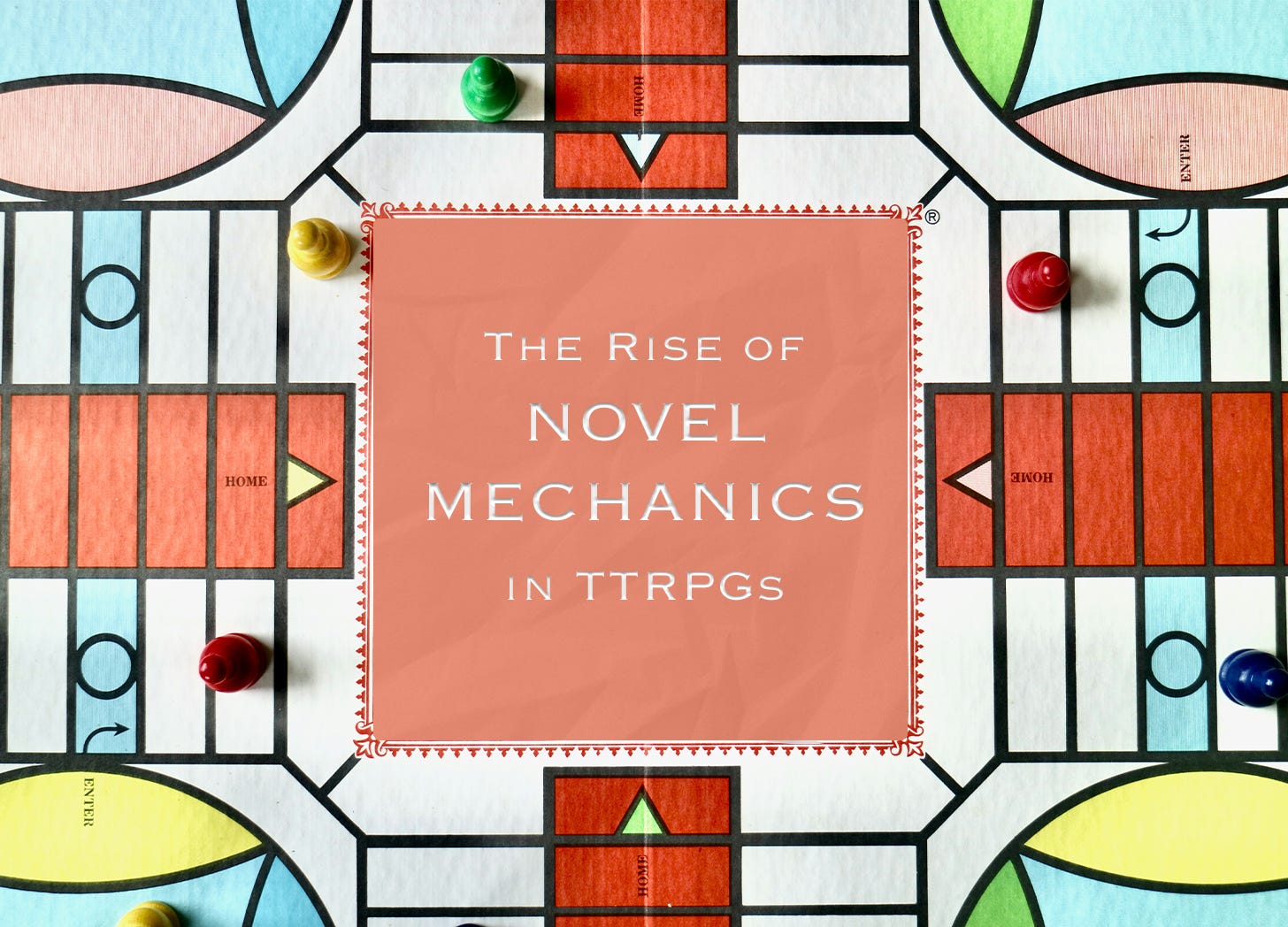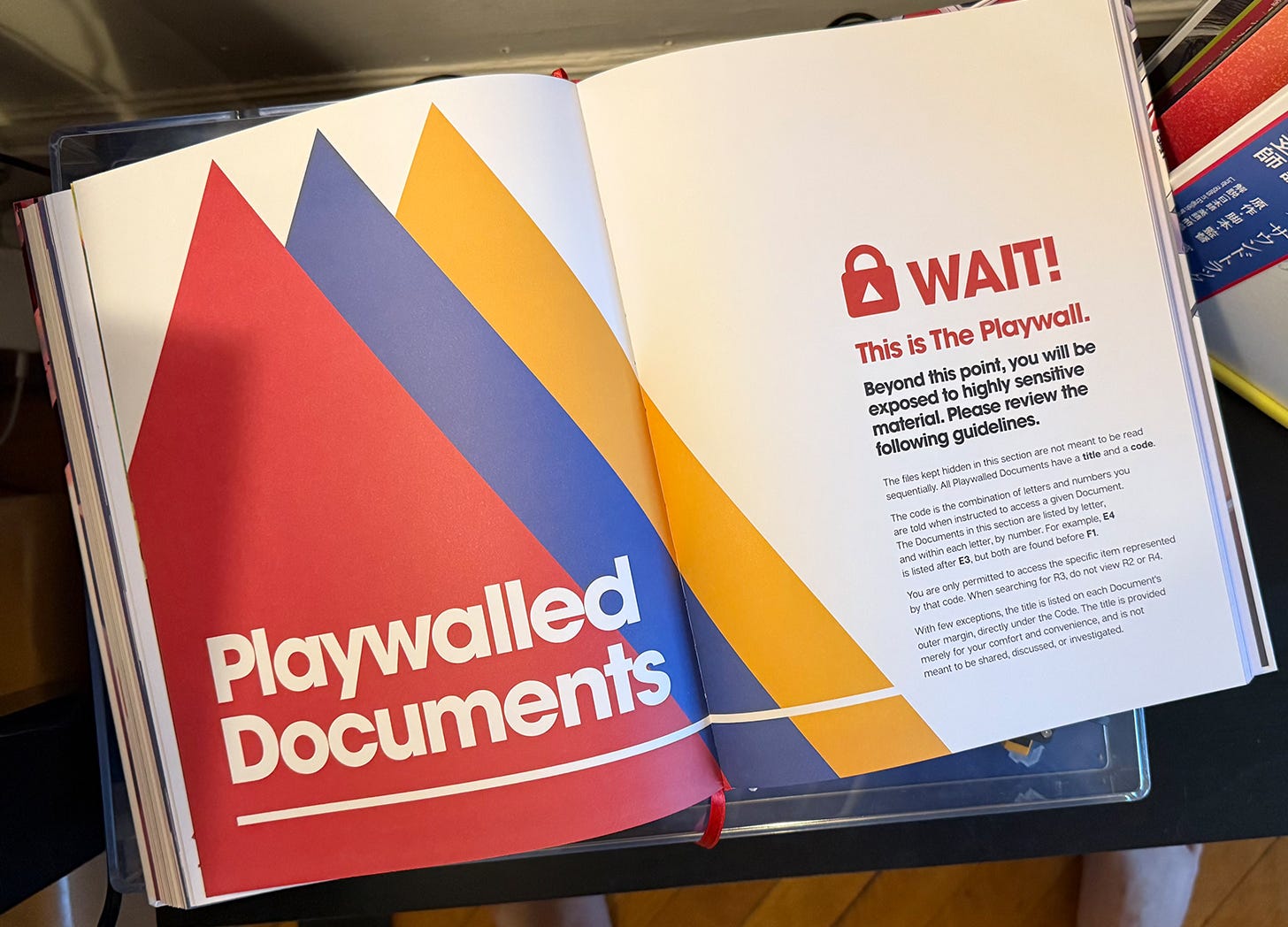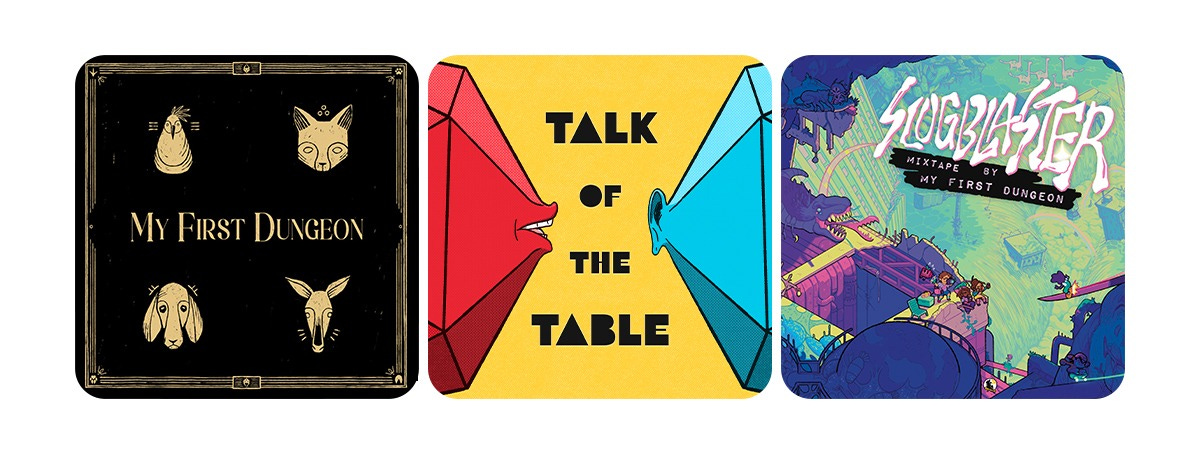Many of the most interesting games I’ve read this past year have one thing in common: they incorporate mechanics and ideas from classic board and gambling games into their design.
After growing so used to dice, tokens, and prompts as the core mechanics for an RPG, it’s been invigorating to be confronted with something both familiar and yet novel that adds a new flavor to the roleplaying experience. It brings together my two loves, modern RPGs and old-school games like dominoes and poker, to make both feel far more exciting and innovative. And now that I’ve picked up on the practice, I’ve started to see it all over.
Last Train to Bremen: Liar’s Dice
Most recently on our actual play podcast My First Dungeon we played Last Train to Bremen which uses the gambling game Liar’s Dice as its core mechanic—you might be familiar with this dice-based bluffing game from a pivotal scene from Pirates of the Caribbean 2: Dead Man’s Chest. Bremen relies on the game’s increasing tension to propel the narrative and also reinforce the animosity between the quartet of doomed musicians you’re playing. Plus, a game of dice just feels thematic in a story about running from the devil as stowaways on a freight train.
Bremen escalates tension throughout play by prompting the players to recall memories of past grievances between bandmates. The competitive nature of Liar’s Dice highlights this and makes it easier for the player to inhabit this combative mindset. It’s a cinch to roleplay pettiness when your friend just looked you dead in the eyes after you made a questionable wager and said, “Bullshit.”
Liar’s Dice works so well for Last Train to Bremen because it fits thematically in the fiction of the world. You can imagine playing the game as your characters. Your slowly dwindling set of dice provides a great pacing mechanic for the story and also for your character’s abilities, which get unlocked as you lose your dice and get closer to being eliminated from the game. Every bit of this marriage between mechanic and story just “works.”
Dread and Star Crossed: Jenga Tower
Board game mechanics are often used in TTRPGs as abstractions for tension. But there are few games more tense in their actual playing than Jenga. The tumbling block tower game of increasingly difficult feats of manual dexterity lends itself to games across a wide range genres, reaching all the way from Dread (horror) to Star Crossed (romance).
Various RPGs utilize the Jenga tower in a number of different ways to fit the needs of the game, often depending on whether or not the game has a GM. In Dread, the GM can use it to negotiate increases in the drama of the scene—a particularly dangerous action might result in multiple pulls from the tower, ramping up the tensions and translating the fiction into mechanical consequences.
My favorite use of a Jenga tower in a TTRPG, however, is in Star Crossed because the very act of pulling from the tower also impacts the way you roleplay. In this game, the player’s in-character dialogue is limited to the time it takes to pull a block from the tower. This packs tension and meaning into, not just every interaction, but every individual word, while simultaneously limiting the time available to you with each move. With this simple rule, the theme of forbidden love leaps to the forefront of play without much effort from the players. As impactful as a single die roll might be, it will rarely match the sigh of relief that accompanies a successful pull from a precarious position (or the cry of dismay from the inevitable tumbling of the tower).
Triangle Agency and Yazeba’s Bed & Breakfast: Legacy Play
TTRPG designers need not limit themselves to discrete mechanics when considering what to adapt from board games. They can also look to larger design concepts like “legacy play.”
Now, the concept of “legacy play” in general is something largely inherent to most multi-session TTRPGs—leveling up through a D&D campaign being the most basic example. But imagine the difference it would make in the experience if you didn’t know what was behind the “playwall” of the next level.
Yazeba’s Bed & Breakfast and Triangle Agency are two games that make fantastic use of this kind of legacy play in their core gameplay loops. In Yazeba’s, the completion of each chapter grants the players various physical stickers which can be added to “shelves” scattered throughout the book, tracks that, once filled, unlock new playable characters or chapters. There are even “hidden” chapters scattered throughout the book that aren’t referenced in the table of contents. In this way, the book itself becomes something to be explored, just like the titular Bed & Breakfast.
Which RPG mechanics make your heart sing?
Triangle Agency also takes the idea of “playwalled” content and runs with it. The last third of the core rulebook consists of materials that are unlocked throughout play. These include new items, additional abilities, and lots of stuff that I don’t fully understand because I don’t want to read too closely and spoil surprises that I’m excited to unlock when I eventually play in a campaign of Triangle Agency. This legacy material also helps the GM to slowly reveal more and more about the true nature of the anomalies you are fighting and the mysterious Triangle Agency that you work for. The players are able to look forward to the new goodies that they unlock after each session and the GM is aided by the game itself to slowly pace out the revelations about the Agency.
The more I look, the more games I find that are incorporating board game mechanics into their TTRPGs in novel and thematic ways.
Orbital Blues: The Wanderer uses poker hands to determine your character’s final prompt in a solo game
The Job, Icarus, and Koriko: a Magical Year all use dice stacking to simulate tension in similar ways to a Jenga tower
Hunt(er/ed) uses a ring toss game as a skill-based system to simulate a shifting balance of woe between your inner monster and outer self
Spell uses Scrabble tiles as a system for casting magic
Details of Our Escape uses dominoes to dictate the setting
And the list goes on and on…
After playing and reading so many TTRPGs, I’ve seen dice used in just about every possible way. And while a simple d20 is an excellent mechanic for a roleplaying game, right now I’m most excited about the limitless possibilities for new mechanics to make their way into my next favorite TTRPG. It is a massive well from which to draw. Board games constitute a community of designers that has been at work for a much longer time than TTRPG designers and is more mature by sheer fact of time. Incorporating mechanics from board games for a TTRPG creates something that is at the same time both comfortingly familiar and an entirely novel experience simply because of the juxtaposition of unexpected elements.
If there is to be a major leap forward in TTRPGs, I expect it will come from this kind of experimentation.
— Brian
💸 Coupon Clippings
Use these codes to score deals on some of our most favorite games and keep an eye out for more coupons coming up in future newsletters.
MFD2025 — 20% off anything in the Mythworks Store (Go grab your copy of Slugblaster!)
MFD20 — 20% off Stewpot from Evil Hat Games
MANYSIDED - 20% off anything from moreblueberries.com (excludes pre-orders)
🗞️ News Worthy
Godkiller: QISMAT, a multilingual actual play, premieres its trailer, with the series premiering on Sunday, August 3rd on Twitch.
The 2025 ENnie Awards Nominees were revealed, including Many Sided Network affiliate Dice Exploder for Best Streaming Content!
Former Dungeons & Dragons VP Jes Lanzillo to take over White Wolf’s World of Darkness.
🎲 What We’re Bringing to The Table
🎥 Watch: Quinns Quest reviews Mythic Bastionland
📚 Read: Does the ENnies need to judge Actual Play? by Dr. Emily Friedman (free Patreon post)
🎧 Listen: Look Behind You (Part 1) | A Liminal Horror Actual Play
🎙️ New From The Studio
My First Dungeon : Last Train to Bremen, Act 1 (Thursday July 17)
Talk of the Table with Avery Alder (Monday, July 21st)
My First Dungeon: Slugblaster | Session Seven (Thursday, July 24th)
PATREON EXCLUSIVES
Under the Table | July with Brian and Elliot (out now!)
My First Dungeon: Slugblaster Talkback (Thursday, July 7th)
News From The Many Sided Network
Dice Exploder is running a game jam themed around games that take one hour or less to play and is accepting submissions now through Sunday, August 10th.
Tune in for the second installment of “Look Behind You | A Liminal Horror Actual Play” with Maia’s Game Room dropping Monday, July 27th. (Part 1 out now!)
Mage Hand High Five releases another episode of The Badlands series, “The Badlands - Ep. 42: Dreamborn” on Wednesday, July 16th.











